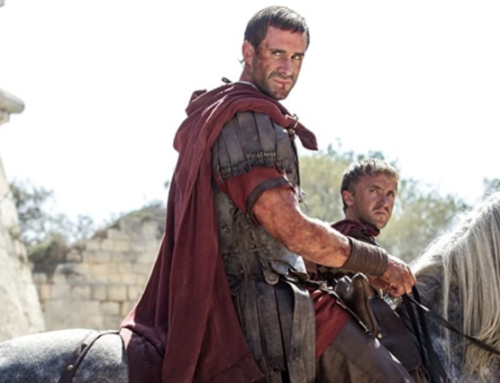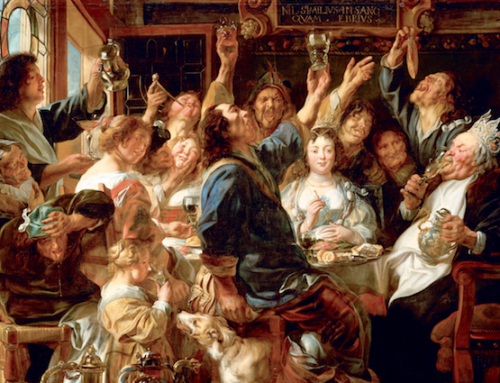 I came across this the other day, from the Washington Times: Kids flee football in light of NFL violence, Pop Warner participation plummeting.
I came across this the other day, from the Washington Times: Kids flee football in light of NFL violence, Pop Warner participation plummeting.
The author is Nathan Fenno, and I hasten to say that I am the last man in the world to wish to kill the messenger. His article is on the whole fair, although the subject itself leans to the feminization of our culture. The gist is this: Football is violent and dangerous, lots of boys and men get concussions which have bad consequences, and therefore many parents, including those who have come from a football culture, want to protect their sons from football’s consequences, at least until they are in high school.
The latest round of anti-football picks up again on the original complaint. Young men get killed being gladiators. John J. Miller’s wonderful book, The Big Scrum, tells the first part of this story, how Teddy Roosevelt saved football just over a hundred years ago, the subtext saying, how football was saved from itself. It is true that people, mostly young men, die from doing dangerous things. Thank God.
Please allow me to regress for a moment. It is reported that 243 young men died from football injuries in the years 1990-2010. That’s not good. But the last time I looked at another statistic, there had been 292 murders in south Chicago this year alone. Are people fleeing Chicago, or is the population plummeting? About the same number of young men play football as live in south Chicago. Have we seen calls for reform comparable to the number of concerns expressed about football’s concussions?
Mr. Fenno rightly points out that many people who understand football are concerned that very young boys are not being taught to play the game very well, that they are taught only to turn themselves into human torpedoes that strike from the head. When I was a boy there was no Pop Warner football, thank the Lord, and therefore we played without pads and helmets and learned early how not to be stupid. When William Wallace returned to his home town in Braveheart, he and his old pal threw stones at each other’s heads, but knew very well what the limits were. They had more serious things to do later, and would not lead with their helmets.
Young men must learn war. When they do is a matter of culture, and how they do it is part of the quality of that culture. Joe Paterno, one of my great heroes, knew that football and Virgil’s epic poem built civilizations. A true republic cannot survive without football, or something very much like it.
Let us take one larger step. The ancient Greeks praised their athletes, and the Olympics defined their culture as much as their theater, poetry, and philosophy. In fact, as their games declined, so did the rest of the culture. Is it an accident that the United States achieved their greatest prosperity and happiness as their sports began to define them? Zane Grey is well known as a writer of the American west, a creator of tales that help us to remember our shared qualities of self-government and courage and loyalty. His best books, I submit, are about baseball, which add to the western novels the virtues of community, of humility, of being willing to be obedient to a larger purpose than mere individualism, or mere democracy.
Mr. Fenno’s proper concern should not be about safety, but about character. Men protect their families because they learn in various ways (especially in Genesis) that there is something more important than themselves. The Romans, of course, took their games too far, and their gladiatorial slaughters became a sign of their decline rather than their robust health. Mr. Fenno and others are probably correct to warn us about that same tendency. We must remember, however, that sports in general, and football in particular, in how they grew and what they mean, are bastions of the republic.
Books on this topic may be found in The Imaginative Conservative Bookstore.







“Is it an accident that the United States achieved their greatest prosperity and happiness as their sports began to define them?”
Yes, yes it is. Next question.
“Have we seen calls for reform comparable to the number of concerns expressed about football’s concussions?”
Well, John, I think far, far more calls for reform: it is called gun control. Perhaps you were not aware of this movement?
I enjoyed this John. I do think the attack on the game (football) is yet, another effort by the effete Left-Progs to sissify American men. There’s also a homosexual component to their protestations as well. I can pretty much guarantee you, you will not recognize the game in five years. Yet, another reason to stay away from Democrats. Merry Christmas, and go Steelers!
Maasai boys, until recently went out solo to hunt a lion with a spear and came back men. Various male rites of passage involve fear and usually pain. By such standards, US football works well and is benign. Of course all male rites are targeted there.
The line, Joe Paterno, a great hero of mine, caught my attention. Is this the same Joe Paterno,deceased, of the Universityof Pennsylvania?
Mr. True, the late Coach Joe Paterno was the coach of Penn State. May he rest in peace.
John O’Hara, prefect of religion at Notre Dame, later president of the university, and Fighting Irish fan, in his “Religious Bulletin,”: “When St.Paul said, ‘ Whether you eat or drink or whatever else you do, do it for the glory of God,’ he included football.”